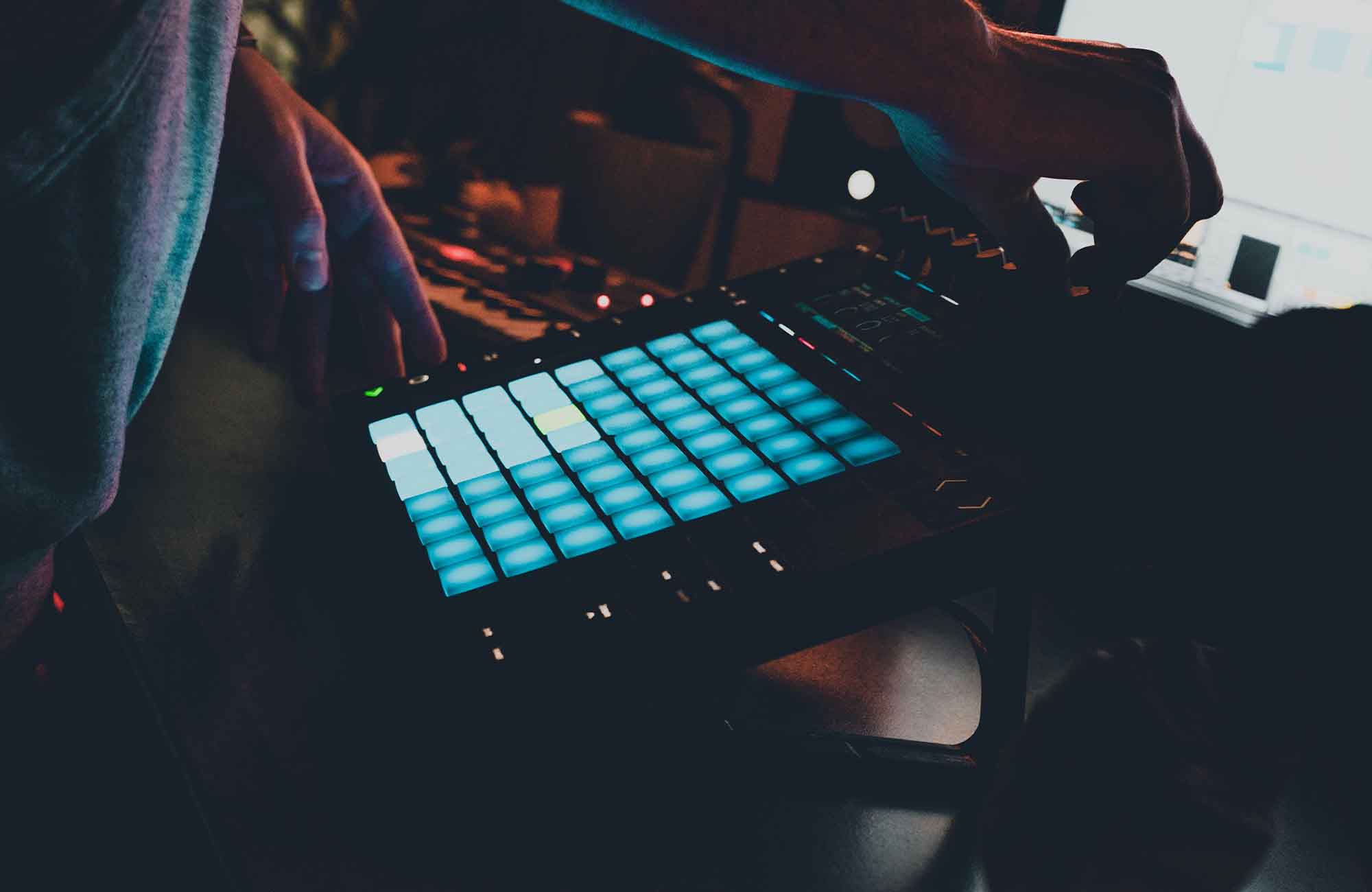
How to License Beats Online: A Step-by-Step Guide
As an independent rapper, securing the right beats for your music is essential to crafting a professional sound and standing out in a crowded industry. One of the most efficient ways to access high-quality instrumentals is through online beat licensing. However, navigating the world of beat licensing can seem confusing, especially if you’re new to the process. In this guide, we’ll walk you through the steps to license beats online and help you understand the key terms and concepts involved.
1. Understand the Basics of Beat Licensing
Before diving into the process, it’s crucial to understand what beat licensing is and why it’s important. Licensing a beat means you’re purchasing the right to use the beat in your music under specific terms set by the producer. There are two primary types of licenses:
- Non-exclusive License: You can use the beat for your project, but the producer can sell the same beat to other artists.
- Exclusive License: You have full rights to the beat, and the producer can no longer sell it to anyone else.
Additionally, some producers may offer an Unlimited License, where you are not restricted by limits like streams or sales but don’t have exclusivity. This can be a good option for artists wanting flexibility without the cost of exclusivity. Make sure to read and understand these terms before purchasing.
2. Find a Reputable Beat Marketplace
There are several online platforms where producers sell their beats. Some of the most popular ones include:
- Tellingbeatzz.com
- Beatstars
- Airbit
- SoundClick
These platforms allow you to browse beats by genre, mood, or tempo. It’s important to choose a marketplace that has a good reputation and offers clear licensing terms. Platforms like Tellingbeatzz provide a wide range of beats for all styles of rappers, making it easier to find what fits your vision.
3. Listen to Multiple Beats and Shortlist Your Favorites
Once you’re on a beat marketplace, start exploring. Listen to several beats and think about how each one fits your unique style and vision. Most platforms allow you to save beats to a wishlist or favorites section. Shortlist a few that resonate with your sound and creativity.
While listening, consider:
- Mood and Atmosphere: Does the beat match the mood of your lyrics?
- Pacing and Tempo: Is the beat’s tempo aligned with your flow?
- Originality: Does the beat sound fresh and unique for your brand?
4. Compare Licensing Options
When you’ve found a beat you like, it’s time to compare the licensing options offered by the producer. Pay close attention to the following details:
- Usage Limits: How many copies of your song can you sell or distribute?
- Monetization: Are you allowed to monetize your song on platforms like YouTube or Spotify?
- Exclusivity: Will other artists be able to use the same beat, or do you want an exclusive license?
- Rights to Modify: Can you make changes to the beat, such as adding extra instrumentation or vocal samples?
Producers usually offer several tiers of licensing, from basic non-exclusive rights to full exclusive rights. Some producers offer custom licensing agreements where you can negotiate specific terms, so don’t hesitate to ask about adjustments. Make sure to select the option that fits your needs and budget.
5. Purchase and Download the Beat
Once you’ve chosen a beat and selected the right license, it’s time to make the purchase. Most platforms offer secure payment methods like PayPal or credit card, ensuring your transaction is safe. After payment, you’ll receive an agreement that outlines the terms of your license. Be sure to save this document for future reference.
You’ll also be provided with the beat files, typically in high-quality formats such as WAV or MP3. Download these files and back them up in a safe location.
6. Read and Store Your Licensing Agreement
Every beat you license will come with a legal agreement. This document spells out the terms and limitations of your license, such as how many streams your song can achieve before you need to renew the license or upgrade to a different tier. Carefully read through this agreement and store a copy for future reference. It’s essential to understand your rights and obligations under this contract to avoid any potential legal issues down the road.
Make sure to double-check details about performance rights and royalties. Producers might retain a percentage of royalties when your song is performed in public, streamed, or played on the radio. You’ll want to ensure that you’re clear on how royalties will be split.
7. Use the Beat to Create Your Song
With the licensed beat in hand, you’re ready to start creating your track. Record your vocals, mix the song, and get it ready for release. As you finalize your project, make sure that you adhere to the terms outlined in your license. For example, if you’re not allowed to modify the beat, don’t alter the instrumental without contacting the producer.
Additionally, it’s a good idea to reach out to the producer for feedback or possible collaboration on promoting the track. Many producers are open to cross-promotion if they like your work, which could help amplify your reach.
8. Promote Your Song
Once your song is ready, it’s time to promote it! Share your track on streaming platforms like Spotify, Apple Music, YouTube, and SoundCloud. Be sure to tag and credit the producer, as this is usually a requirement of most licenses. Proper crediting also strengthens your connection with the producer and can lead to future collaborations.
You can also collaborate with the producer for potential promotional opportunities, like shout-outs or reposts on social media, which can help amplify your song’s reach.
9. Royalty Splits and Revenue Share
It’s important to understand how revenue-sharing works when you license a beat. In most cases, royalties will be split between you (the artist) and the producer. Here’s a breakdown of common royalty types:
- Mechanical Royalties: These are generated from physical or digital sales (streaming counts as a digital sale). The artist and the producer are entitled to a portion of these royalties based on their licensing agreement.
- Performance Royalties: These royalties are paid when the song is performed publicly, either on the radio, in live performances, or even in certain streaming scenarios. Be sure to register your track with a performance rights organization (PRO) such as ASCAP or BMI to ensure you collect these royalties.
- Sync Licensing: If you want to use your track in media such as TV shows, films, or advertisements, you may need to secure a sync license. Some licensing agreements include sync rights, while others don’t, so be sure to check the terms.
10. Renew or Upgrade Your License (If Needed)
Some non-exclusive licenses come with limitations, such as a cap on how many streams or sales your song can generate. If your song performs well and exceeds these limits, you may need to renew or upgrade your license to continue using the beat. Be sure to monitor your song’s success and stay within the terms of your license agreement to avoid any issues.
11. Music Distribution and Metadata
When you’ve finalized your song, upload it to distribution platforms like Spotify, Apple Music, Tidal, and YouTube. Make sure that you input the correct metadata, especially for the producer credits. This is not only important for your licensing agreement but also for legal reasons, ensuring all involved parties receive their fair share of royalties.
12. Adding a Beat Modification Clause
If you’re thinking about modifying a beat (adding layers, changing tempos, etc.), it’s crucial to know what your license permits. Not all licenses allow you to alter the beat. If you’re interested in customization, ask the producer if they’re willing to offer a custom license or collaborate to achieve the changes you want.
13. What to Do If Your Song Gains Traction
If your song blows up and you’re looking at tens of thousands (or millions) of streams, you might need to revisit your licensing agreement. Some non-exclusive licenses have caps on streams or sales, and exceeding those numbers could require renegotiation. Keep an eye on your song’s performance and reach out to the producer if needed.
14. Frequently Asked Questions (FAQs)
- Can I monetize a beat with a non-exclusive license?
Yes, most non-exclusive licenses allow you to monetize your song on platforms like Spotify, YouTube, and Apple Music, but check the specifics of your license agreement for any restrictions. - How do I know if a producer has cleared all the samples?
It’s important to ask the producer directly or check the licensing agreement. If a beat contains samples, those samples must be cleared, or you could face legal issues later. - What’s the difference between leasing a beat and owning it?
Leasing (non-exclusive license) gives you temporary rights with specific limitations, while owning a beat (exclusive license) means you have full control and no one else can use it. - Do I need to register my song with a PRO after licensing a beat?
Yes, registering your song with a performance rights organization (PRO) like ASCAP or BMI ensures you’ll receive royalties when your song is played in public, on radio, or in performances.
Final Thoughts
Licensing beats online is a straightforward process once you understand the steps involved. By following this guide, you can ensure that you select the right beat, purchase it legally, and use it in a way that aligns with your goals as an artist. Whether you’re a beginner or an experienced rapper, knowing how to license beats effectively will help you produce high-quality music while maintaining professional relationships with producers.
Be sure to explore platforms like Tellingbeatzz.com, where you can find a wide range of beats that match your style and vision. With the right beat and the proper license, you’ll be well on your way to creating tracks that resonate with your audience and elevate your career.
Browse Beats & Instrumentals
Check out my extensive catalog of more than 500 custom-made beats and instrumentals, available for free download or licensing.


No Comments